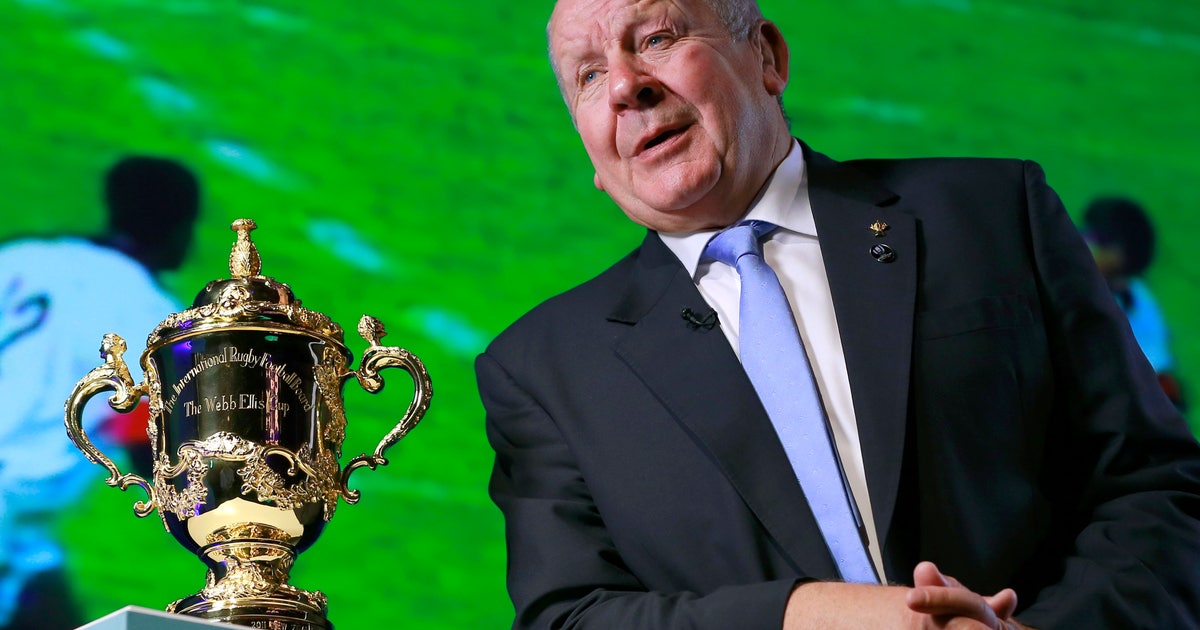Beaumont vs Pichot: The battle for rugby’s top job


The incumbent is an old-school rugby man from the amateur era, backed by the game’s established powers and open to change if maybe not entirely comfortable forcing it through.
The rival is a young, dashing firebrand who made his name after rugby turned professional, a potential revolutionary from outside its defined heartlands and a potential savior for the sport’s have-nots.
World Rugby, the sport’s global governing body, has a classic battle on its hands as Bill Beaumont and Agustin Pichot go head to head for the right to become its most powerful administrator for the next four years.
Voting opened on Monday and will close on Thursday. Then a wait until May 12 before discovering who will be World Rugby chairman.
Beaumont, a 68-year-old former England captain seeking a second term in charge, is regarded as the favorite and is helped by the slanted voting system as much as anything else. The Six Nations unions hold 18 of the 51 votes on offer and they are expected to back Beaumont.
Rugby, however, finds itself on a knife edge, gripped by real financial concerns because of the coronavirus pandemic and pulled this way and that by growing discussion about a global calendar to unify the international game.
Ostensibly, the manifestos of the two candidates aren’t too different. Both are keen to make rugby more global and more financially transparent and both back a world league, funded by venture capitalists, that would bring the northern and southern hemispheres together in one competition.
Yet the 45-year-old Pichot, who is currently Beaumont’s deputy, likely will push through more radical measures to shake up the sport.
Is rugby ready for that?
BEAUMONT
Popular, avuncular, and a safe pair of hands. And maybe that is what rugby needs in these turbulent, virus-affected times when the sport’s finances are so stretched.
Beaumont has a solid first term as chairman behind him — last year’s World Cup in Japan proved to be a roaring success — and has experience as chairman of England’s Rugby Football Union, which put on the most profitable World Cup yet in 2015. He was humiliated in 2017, though, when France won the hosting rights for the 2023 Rugby World Cup from South Africa, Beaumont’s choice.
He has played up his role in making improvements to player welfare, such as the management and reduction of concussions, and increasing female involvement at all levels, including in decision-making roles on World Rugby’s council.
At the heart of his manifesto — entitled “A Game For All” and laid out in conjunction with his election running mate, French Rugby Federation chairman Bernard Laporte, running unopposed for vice chairman — is the renewed push for a global season.
“We will bring the tier one and two unions together,” Beaumont said, “to devise a plan for a global competition structure that better supports unions at the top and those aspiring to get there.”
Beaumont is also promising a governance review of World Rugby, which feels quite apt in the wake of an election campaign that nearly went off the rails because of internal politics in the governing body.
His nomination for re-election was seconded by the Fiji Rugby Union, whose chairman Francis Kean was forced last week to leave his position on the World Rugby council following allegations of discriminatory conduct against him. Beaumont welcomed Kean, who was convicted of manslaughter in 2007, onto an expanded World Rugby council in 2018 and the Fijian official had been bidding to get on the body’s executive committee before the recent scandal.
PICHOT
As the demonstrative scrumhalf of Argentina’s national team, Pichot was a pivotal figure in its rise in world rugby in the professional era (since 1995) and could be a breath of fresh air on the administrative side of the game, too.
There appears no doubt he would push the claims of the lesser rugby countries more than Beaumont, having vowed to keep the traditional rugby nations “strong” while “developing and supporting our emerging nations who are fighting for survival and relevance in their regions.”
Among his ideas of modernization, for example, would be to send the British and Irish Lions to the Americas for the first time since before World War II.
“I would use the Lions on a more worldwide scale,” he said. “I would like to see that brand travel even further.”
If he becomes the first chairman from outside the Six Nations unions or leading southern hemisphere nations, Pichot says he would give the less-established rugby nations a bigger say at boardroom level and take the game to a younger audience. He also wants to revive the Nations League proposal that was abandoned less than a year ago, and spread rugby’s wealth, saying the sport should be “moving on from the time where those benefits were for just a few.” The Six Nations, he feels, hold too much power.
Whereas Beaumont has the support of Europe, Pichot has the backing of the SANZAAR nations (South Africa, New Zealand, Australia and his native Argentina) plus Asia and South America. He’s also received public backing from World Cup-winning coach Clive Woodward, a former England and Lions teammate of Beaumont.
VOTING
Eighteen countries plus six regions will take part in voting, leading to a total of 51 votes which will be “in secure electronic form” and both managed and audited in Switzerland, according to World Rugby.
England, Ireland, Scotland, Wales, France, Italy, New Zealand, Australia, South Africa and Argentina all have three votes, Japan is worth two votes, and the other nations have one vote.
The six regions — Asia, Oceania, Africa, North America, South America and Europe — have two votes each.
The vote has been brought forward in response to the coronavirus outbreak.







